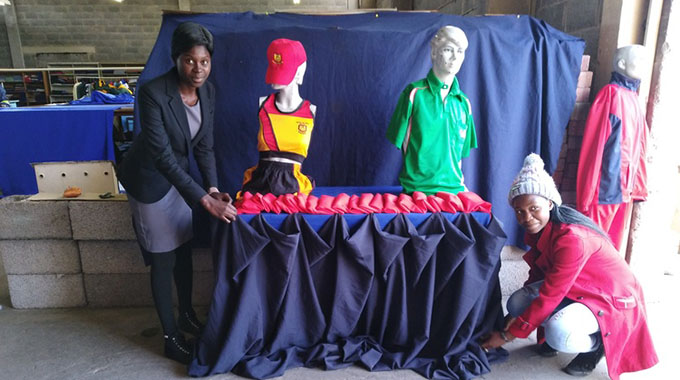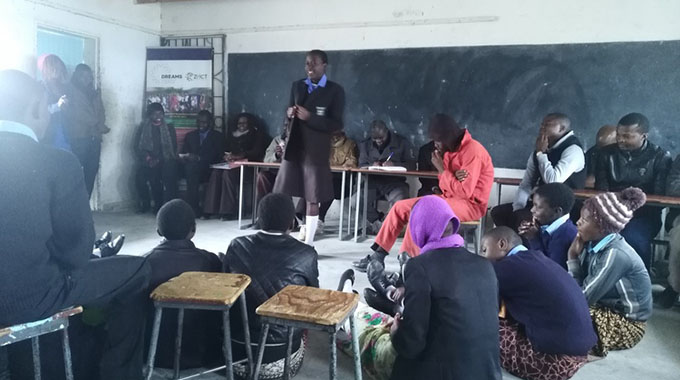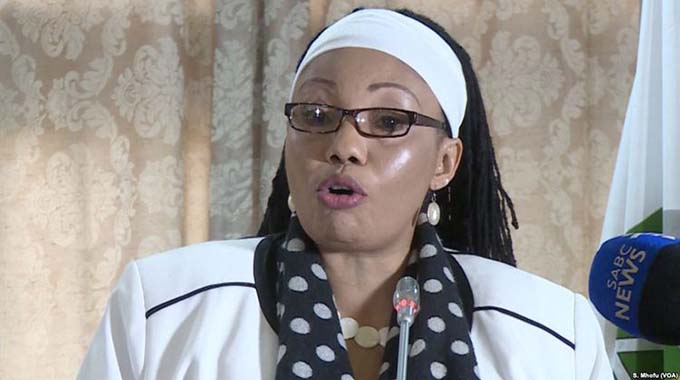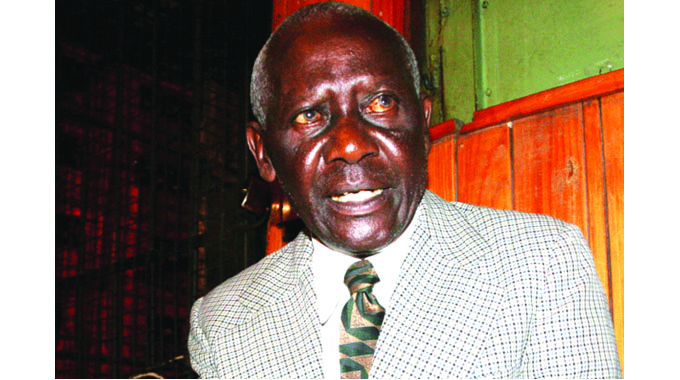Empowerment initiative rescues vulnerable girls

Paidamoyo Chipunza Senior Health Reporter
Resilient girls and young women aged between 16 and 24 stood boldly before an audience sharing their previous vulnerabilities which increased chances of ruining their path to empowerment.
Braving the intimidating repeated camera flashes and continued focus by videographers, the girls recalled how their lives were transformed from bleak to bright.
Seventeen-year-old Tariro Murungweni — a Form Four pupil at Gambiza Secondary School in Chiwundura and 21-year-old Susan Tirivangani (not their real names) from Gweru urban both in Midlands province — are part of these girls who successfully went through mentoring under the Determined, Resilient, Empowered, Aids-free, Mentored, Safe women (Dreams) initiative and are now striving to be Aids free — safe women.
“I failed to sit for my Ordinary Level examinations in 2013 because my older brother was repeating his Ordinary Level as well and my mother could not pay for both of us. Instead, my brother got preferential treatment ahead of me,” said Tirivangani as she narrated her story.
She said her father died when she was only a year old.
Tirivangani said since she was used to waking up every morning going to school, it was not easy to stay at home, hence she reached out to her older half-brothers who were working in South Africa for assistance.
She said both his brothers responded by inviting her to South Africa to be their baby minder as they go to work together with their wives.
“What affected me most is the fact that they afforded to send me money to get a passport and to cover subsequent travel expenses to South Africa yet they failed to assist with examination fees the very same year,” recalled Tirivangani as she struggled to hold back her tears.
She said since she had no other option, she proceeded to South Africa that year where she worked as a child minder at one of her brothers’ house for almost a year, sadly with no salary.
“One morning, my sister-in-law just woke up saying she no longer needed my services and ordered me to find somewhere else to go while looking for a job,” she said.
“In South Africa, it was not easy to get a job. I tried everything including sex work. Sex work seemed to be paying much better and quicker to at least sustain a meal and a rental at the end of the month in a foreign land.
“I was only afraid of getting pregnant not HIV, so I never used protection and instead resorted to morning after pills to prevent pregnancy.”
She narrated that this became her way of life until 2015 when her mother called her to Zimbabwe to resume and complete her education.
She sat for her Ordinary Level examinations in November of that same year and passed but failed to proceed to the next level and was already contemplating going back to South Africa.
“When you are growing up there are people whom you confide in. I had confided about my life with some friends from school and one day as I was home contemplating going back to SA, I received a message that there was a programme where girls and women between 16 and 24 years were invited for empowerment programmes,” she said.

Gambiza Secondary School girls perform a play on girls empowerment
Tirivangani took heed of the call and approached the Youth Advocates Zimbabwe (YAZ), which was working with the girls in the implementation of the Dreams initiative.
Since then, Tirivangani said she, together with other identified vulnerable young girls, went for training where they received teaching on self-control, HIV and Aids risk factors and prevention options, life skills and financial discipline among other lessons.
“It was my first time to get tested. I was tested and now I know my status. I also started reducing sexual partners. I used to sleep with several men, but now I have one partner,” she said.
She said these lessons have shaped her into a professional tailor. Tirivangani is currently employed by one of Gweru’s largest clothing factory — Mes Clothing.
Having been born and raised in a rural setup, Murungweni’s vulnerabilities were even more complex.
“I was impregnated at the age of 15 but could not get married to the person who impregnated me as we were both under the legal age of consent,” she said.
“Upon giving birth, my father insisted that I must go to Harare to work as a maid so that I can look after my baby. A job had already been secured for me and I was promised $60 as monthly salary.”
She said as she was preparing to leave for Harare, community child care workers approached her, through her mother and offered her an opportunity to go back to school.
“My father was mad about the whole idea of me going back to school even if he was not going to pay for the school fees. He insisted that I should instead go to work.
“As you know, mothers stand by their children. My mother stood by me, until my father gave up resulting in me going back to school,” she added.
She said initially she was ashamed of going back to a formal schooling environment when she was already a mother and other pupils also mocked her for that.
Murungweni, who dropped from school when she was in Form Three, said it took her courage and commitment to blend with other pupils while focusing on her school work.
“When I complete my education, I want to be a teacher. With this opportunity of going back to school that has been given to me, I am determined that my dreams will come true,” she said with a grin.
She urged fellow girls and young women with similar predicaments to embrace Dreams initiative saying it gives hope where it would have been lost.
Dreams is an initiative first introduced by the President’s Emergency Plan for Aids Relief (PEPFAR) targeting in and out of school girls and is aimed at reducing vulnerabilities encountered by these girls in combating HIV and Aids.
Dreams national coordinator with the National Aids Council Mr Masimba Nyamucheta said the initiative is currently running in nine districts, three of which are funded by the Global Fund to Fight Aids, Tuberculosis and Malaria.
The other six are funded by PEPFAR.
He said because of the successes of the initiative realised in the past two years, Government was working on replicating some components of the package to all districts throughout the country.
“We invited various officials from different Government departments so that they see the project’s successes as we seek ways of replicating it to other districts of the country that are not yet covered,” said Mr Nyamucheta soon after a tour of Bulawayo and Gweru projects by various stakeholders.
Head of Aids and Tuberculosis Unit in the Ministry of Health and Child Care, Dr Owen Mugurungi said the Dreams project will go a long way in reducing the rate of new incidences among adolescent girls and young women through responding to key drivers of high risk behaviour.
He said adolescent girls and young women were one of the high risk groups in the country where new HIV infections are still high.
The other groups are sex workers, long distance truck drivers and prisoners — who are also targeted under the Dreams project.
“The idea is for us to coordinate our efforts to achieve our set goals through clear policies, less duplication, creation of synergies in a sustainable manner,” said Dr Mugurungi.
According to statistics from the Ministry of Health and Child Care, an estimated 40 000 new infections occur in Zimbabwe with adolescent girls and young women being the worst affected.
In Sub-Saharan Africa, girls and young women account for 71 percent of new HIV infections.








Comments